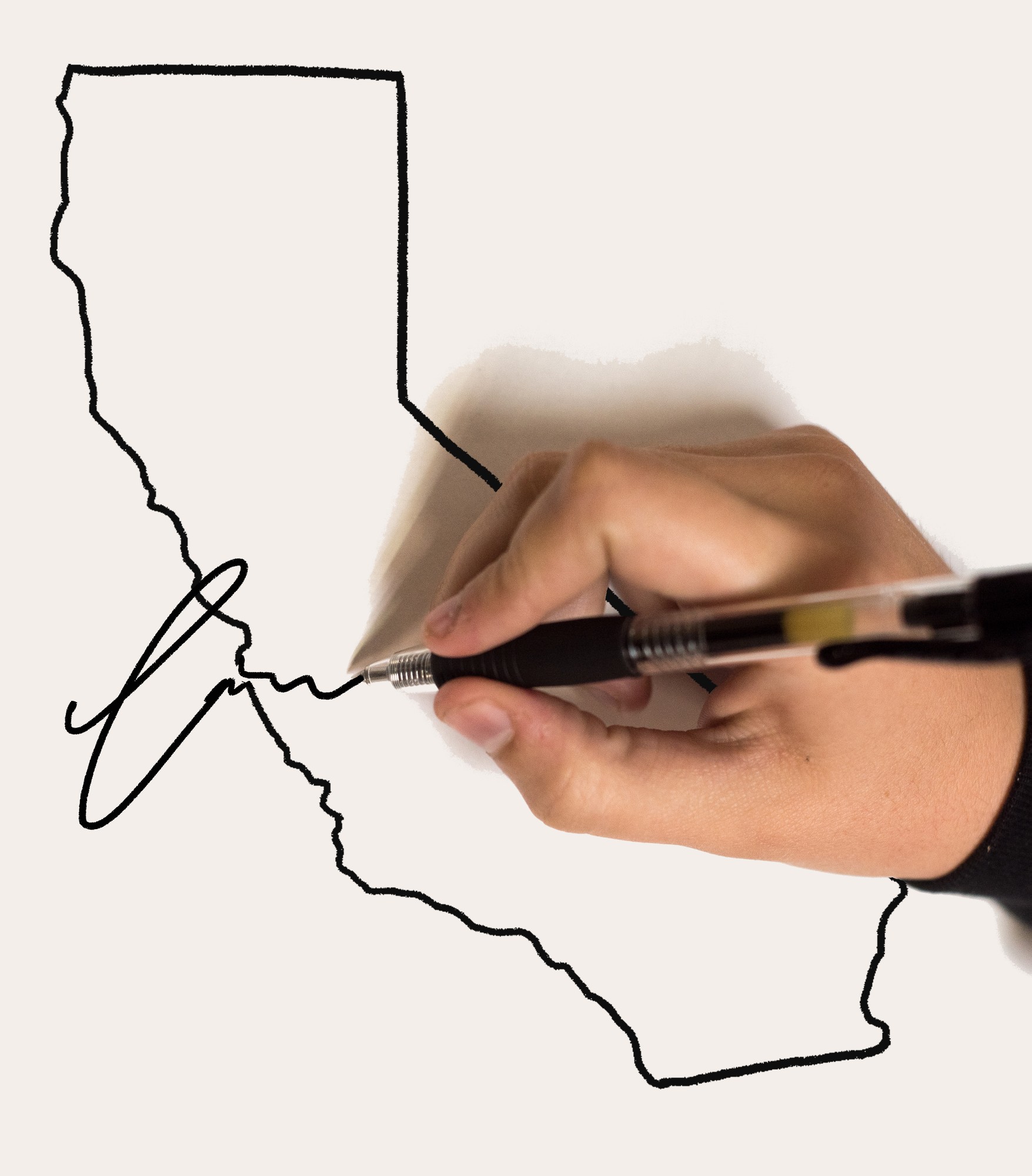The Quad: A breakdown of SB 206, which allows student-athletes to monetize their likenesses

The governor of California, Gavin Newsom, signed SB 206 into law Sept. 30. The bill will allow student-athletes to be paid for use of their image and likeness in media starting in January 2023. (Photo by Kanishka Mehra/Assistant Photo editor, Photo illustration by Andrea Grigsby/Illustrations Director)

By Veronica Fernandez De Soto
Oct. 16, 2019 6:25 p.m.
From within courtrooms to posts on LeBron James’ Instagram, the discussion of student-athletes’ name, image and likeness rights has seemingly come to an end.
Not only is the bill a media magnet, but with articles titled “Free labor from college athletes may soon come to an end,” and “Should College Athletes Be Allowed to Get Paid?,” California Senate Bill 206 is bound to raise some eyebrows and shine a light on the interminable debate of student-athlete employability.
California SB 206, which comes into effect in January 2023, allows college athletes to control and gain revenue for their own name, image and likeness.
This means that student-athletes now have the ability to get paid for sponsorships, endorsements and autographs without losing their scholarships or NCAA eligibility. Similarly, they can now monetize their social media accounts, advertise their own products and hire agents to guide them in this new market.
NCAA and Pac-12 have referred to SB 206 as unconstitutional. UCLA law professor Steven Bank explained why this argument might also have some merit.
“The commerce clause in the Constitution says that the U.S. federal government has the ability to regulate commerce between the states,” Bank said. “In a situation where the federal government is not acting, the question is: Can a state government fill that space?”
The act won’t go into effect until January 2023, which means it still has legal hurdles to jump. However it has come a long way since it was first proposed. Here’s the Quad’s recap of the bill from its conception to the current status.
July 2009
After helping the UCLA men’s basketball team win the 1995 NCAA championship, Ed O’Bannon filed a class action lawsuit against the NCAA in July 2009 over the use of former players’ images. He championed the issue after seeing himself in a video game and wondering why he had not received portion of the game’s profits.
O’Bannon argued that the NCAA’s policy – which prohibited student-athletes from the colleges associated with the organization to use their name, image or likeness in order to gain profits – was an unlawful restraint of trade. A restraint of trade is defined as any activity that keeps an another party from conducting business as they normally would.
August 2014
O’Bannon v. NCAA culminated in the court deciding that the NCAA had violated antitrust laws. As a solution to the issue, the court allowed NCAA member schools to offer full tuition, room and board as well as stipends to cover the costs of attending college to their student-athletes.
The courts decision was a step in the right direction, according to O’Bannon, but still insignificant compared to the money that the NCAA makes from the players’ images. Similarly, the decision changed the commercialization of college sports as EA Sports, the company producing NCAA video games, decided to discontinue its college basketball games.
Even though the U.S. Court of Appeals’s decision reinforced the idea that student-athletes should not be allowed to make profit over the use of their name and likeness, it was also the first instance in which a federal court demanded that the NCAA change its practices. This would pave the way for SB 206.
February 2019
California state senators Nancy Skinner and Steven Bradford unveiled SB 206 in February. In a statement, Skinner outlined the potential effects of the act. This bill aims to aid the majority of full-scholarship college athletes, lifting them out of poverty, provide support in managing academic course load and incentivizing student-athletes to complete their undergraduate degrees before transitioning to professional leagues.
May 2019
The NCAA announced the creation of a new working group to consider possible policy change to ban the possibility of name and likeness payments to college athletes. At the same time, EA Sports’ executive producer said in a statement that the company would be interested in bringing the NCAA video games back into the market, as evidence of the changing attitudes toward the name and likeness debate.
May 22, 2019
The California Senate approved SB 206 on a 31-4 vote. The support for SB 206 was bipartisan. The bill would move onto the state Assembly.
July 2019
The state Assembly’s Higher Education Committee approved the act unanimously 9-0. Since the Assembly would go break for summer recess, it would not be subject to assemblywide vote until September.
Sept. 9, 2019
The bill was unanimously approved by the state Assembly by a 72-0 vote.
A couple of days after the bill was approved in the state assembly, the NCAA released a statement two days later to Gov. Gavin Newsom, opposing the bill on the grounds that it would give California schools an unfair advantage on a national level.
Sept. 30, 2019
Newsom signs SB 206. However, the law will not go into effect until January 2023, giving both the NCAA and Pac-12 sufficient time to enact new policies.
The same day, Pac-12 released a statement opposing the bill on the grounds that it changes the student-athlete and makes them employees, transcending the nature of university athletics.
The uncertain future of SB 206
The issue of paying college athletes is plagued by hypotheticals, which have all been unleashed with the historic signing of the bill. The future of UCLA’s college athletes as revenue-earning individuals will be uncertain and confusing, at least until 2023.
UCLA Athletics emphasized the legislation’s conjectural nature in an email statement.
“At this point in time, however, it is too early and there are too many factors up in the air for use to speculate how the legislation might affect different student-athletes,” said Shana Wilson, a UCLA Athletics spokesperson.

